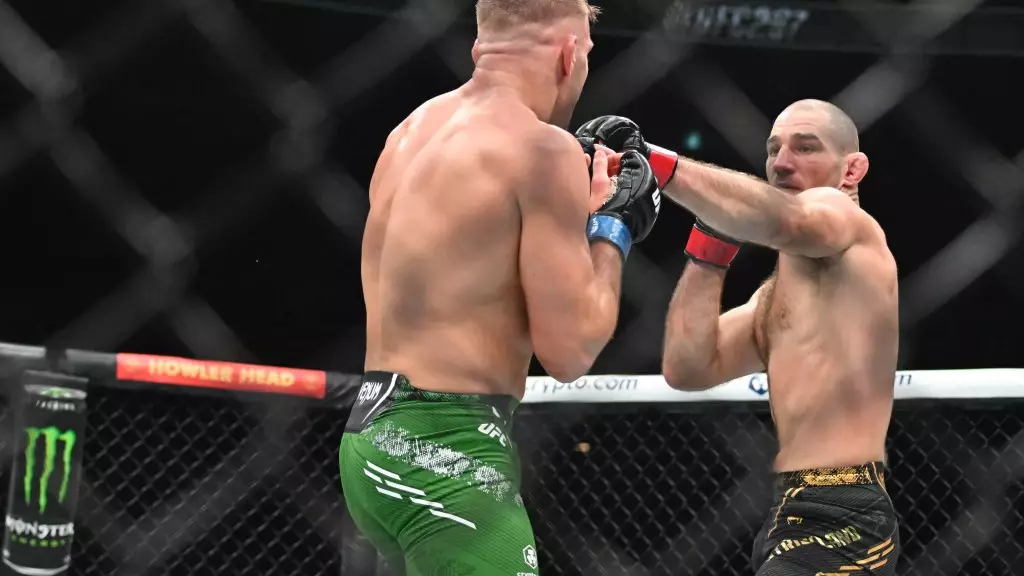The upcoming title rematch between Dricus Du Plessis and Sean Strickland is shaping up to be more than just another defense of the middleweight title; it’s a clash of contrasting fight styles and philosophies. As UFC middleweight champion, Du Plessis (22-2 MMA, 8-0 UFC) prepares to face Strickland (29-6 MMA, 16-6 UFC) at UFC 312 on February 8 in Sydney, he is vocal about his reservations regarding Strickland’s approach to fighting.
Du Plessis, known for his aggressive and dynamic fighting style, finds Strickland’s tactics to be less than thrilling. He expressed his thoughts candidly, underscoring his perspective that Strickland’s method—characterized by forward jabbing and teeping—often leads to tedious matchups. This contrast becomes even more apparent when reflecting on their previous encounter at UFC 297, which garnered Fight of the Night honors despite Du Plessis claiming that Strickland did little to enhance the match’s excitement value.
The history between Du Plessis and Strickland adds intrigue to their rematch. The first fight not only left fans divided over its outcome but also sparked a wave of opinions on both fighters’ capabilities. Du Plessis highlighted moments from their last affair where he attempted to engage Strickland by moving forward, only to be met with evasive measures from his opponent. This manner of fighting, while technically sound, garnered criticism from Du Plessis, who prizes fan engagement and the thrill of the fight experience.
While Du Plessis was eager for a rematch, especially in light of what many described as a controversial split decision, his sights were initially set on Khamzat Chimaev. However, the tide turned after Chimaev’s impressive victory over Robert Whittaker at UFC 308, where his performance reignited interest in a potential matchup with the rising star. Despite the challenge from Chimaev, Du Plessis remained firm in his belief that settling the score with Strickland was a necessary step on his path to solidifying his championship reign.
A key element in Du Plessis’s critique of Strickland revolves around the expectation of fighting styles that captivate audiences and create memorable moments within the octagon. Du Plessis isn’t merely criticizing Strickland; he’s highlighting a broader trend in fight sports where fighters are held accountable for the entertainment value they bring. His comments serve as a reflection of a fan base eager for action, which, in turn, may influence the way fighters approach their training camps and fight preparations.
With UFC 312 around the corner, this championship battle has transformed into more than just a title fight; it symbolizes the ongoing debate about what constitutes an engaging fight. Are fighters obligated to entertain the audience, or is it enough to simply secure victories through efficiency? For Du Plessis, the answer is clear, and he will have the opportunity to illustrate his point inside the cage when he faces Strickland once again.

